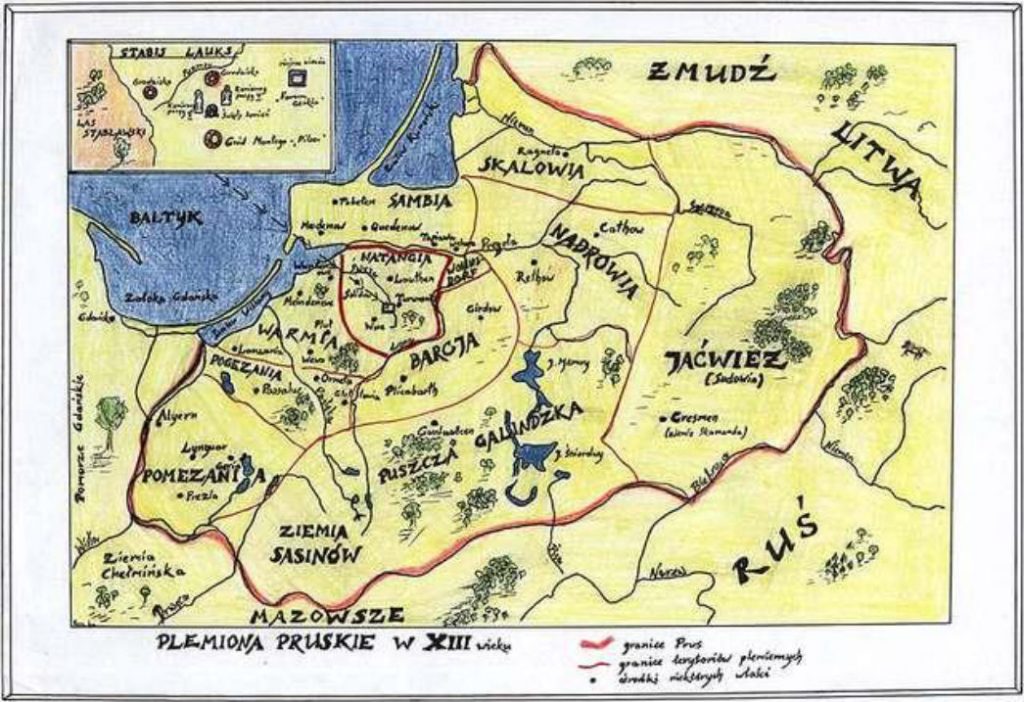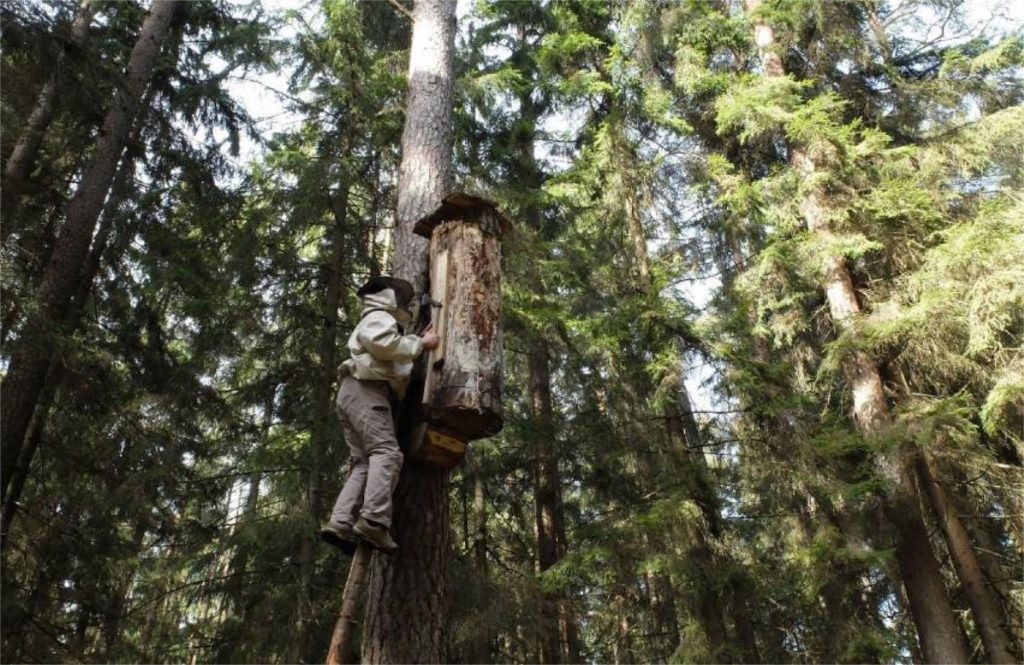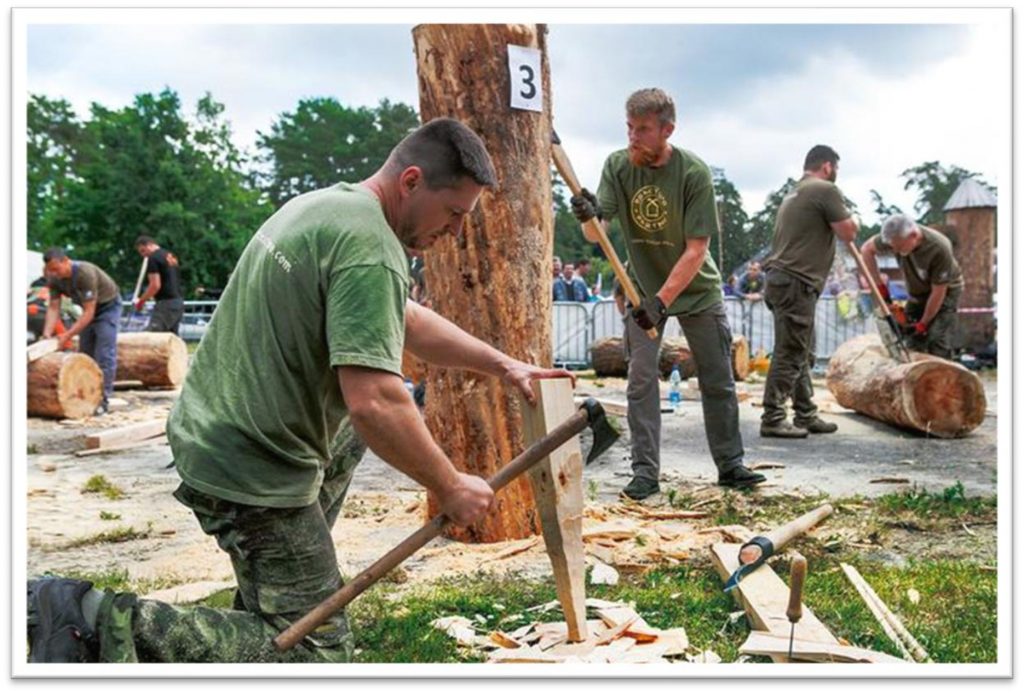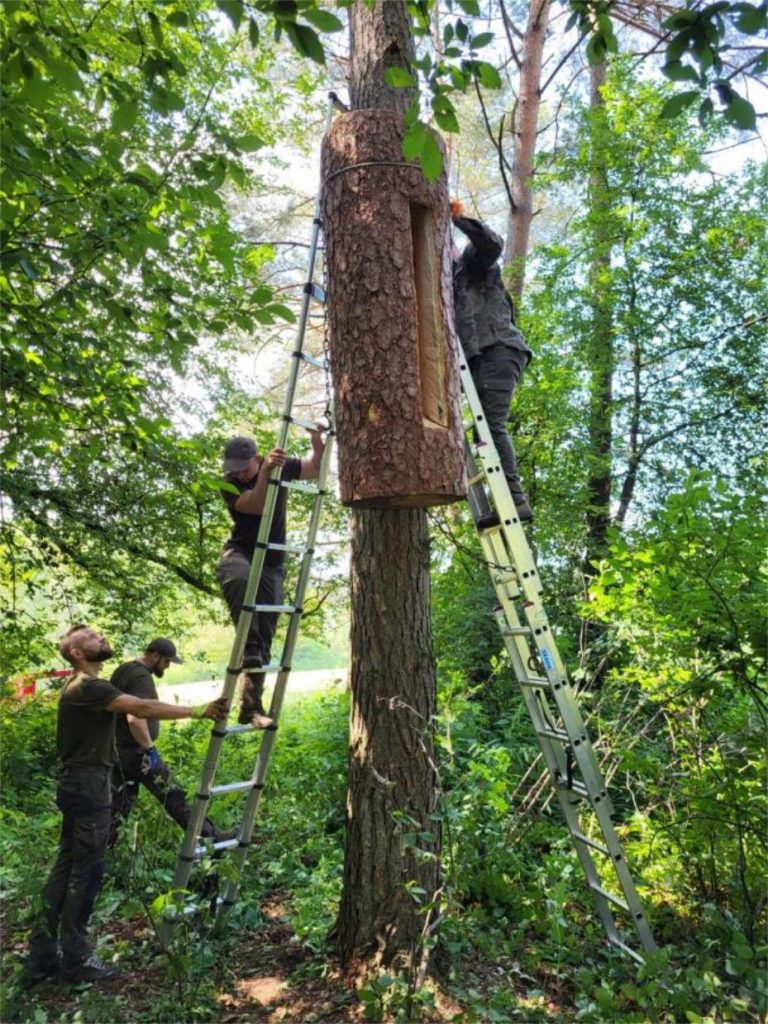History of Jaćwingowie from Gmina Płaska

The history of colonization of today’s terrain of Gmina Płaska is strongly determined by the natural conditions of the Augustów Primeval Forest. Czarna Hańcza and Augustów Canal are the oldest communication routes in this area. Fertile lands and lakes full of fish qualified for the colonization of these terrain. Archeological dig proved that the current lines of Gmina Płaska were parts of old Jaćwieża lands (Sudowia, Sudawia). These lands were located between Biebrza and Neman and also Mamry lake and Łęk river. Jaćwingowie were their residents since about the XIII century.
Social structure of Jaćwingowie was based on mutual relations between tribes that lived close to each other. At the forefront of each tribe there were the elders. People were hunting, raising cattle and wild horses called tarpany. As excavations prove, Jaćwingowie were growing grain and doing beekeeping. They also had some great artisanal skills which was proved by the tools and jewelry that were found by the archaeologists. Some of the objects come from the foreign cultures which make it possible for Jaćwingowie to pillage or to take a part in convertible trade.

source:https://kandyty.wm.pl/349757,Skomand-Mlodszy-wodz-Jacwingow-ktory-spoczal-w-Kandytach.html

Jaćwieski archaeological festival, source:
https://www.newsweek.pl/zdrowie-i-nauka/nauka/archeologia-kim-bylijacwingowie-
historia-ukryta-pod-ziemia/lwz1zxv
As historians say, the turn of the X and XI century brang the beginning of the Polish and Russian expansion to these areas. However, it was the Polish-Russian-Teutonic rivalry towards these lands that brought an end to the Jaćwieża in 1283. Decimated tribe people spreaded out to look for their safety in Lithuania, Ruthenia and Masovia. Some of them were assigned to the Sambia, as the Teutonic Order decided. Over time, lands of the old tribes became wild forests. Disputes over the old Jaćwieża’s lands settled not until the Teutonic Order defeat in Grunwald. In 1422 the lines between the Teutonic Order and Grand Duchy of Lithuania were granted and they survived till 1939 as an eastern line of Prussia.
Beekeeping culture in Augustów Primeval Forest

source: https://augustow.naszemiasto.pl/puszcza-augustowska-warsztaty-bartnicze-w-srodku-puszczy/ga/c8- 4060416/zd/24547638
In 2020 beekeeping culture was written into the UNESCO Intangible Cultural Heritage Lists. This beautiful tradition was growing in societies living nearby the woodlands. The forest was the one teaching them about bees’ lives, telling them about their social structure, rituals and habits.

https://pl.wikisource.org/wiki/Encyklopedia_staropolska/Bartnictwo
Currently the beekeeping culture functions in the areas nearby the historic forests where we can see centuries-old wild or home beehives located in villages nearby the forests. There are mostly the areas located in northeast of the country: Kurpiowska forest in Mazowsze and Augustów Primeval Forest but also – Białowieża Forest.

From the anthropology point of view, beekeepers were seen as people of a strong sense of justice, intelligent and careful. They were admired and trusted which made the beekeeping culture an important part of the local community. Yearly honey harvest not only put local people closer together but also attracted people from the outside.
For the residents of Augustów Primeval Forest, beekeeping was a very crucial element of the familiar local tradition. The knowledge, practice and beliefs connected with the bees were generational. The most important part of the beekeeping culture is pursuing to live along with nature, in harmony. Natural bees’ daily cycle, daily weather condition and changing seasons are the main indications of beekeeping culture. Sadly, climate changes of the past few years make the real danger to the population of bees, including these of Augustów Primeval Forest. UNESCO’s decision motivated the intensification of the action connected with protecting this useful insects. Currently, there is a project named: “Augustów Primeval Forest and beekeeping as the last chance to save the local bees of Augustów forest – forests for bees, bees for forests”. This project is supposed to increase the amount of bees in Augustów Primeval Forests. As a result, in Płaska forest district 12 new hives for the local bees appear. Ultimately at the area of the forest district there should be 24 bee-families.



